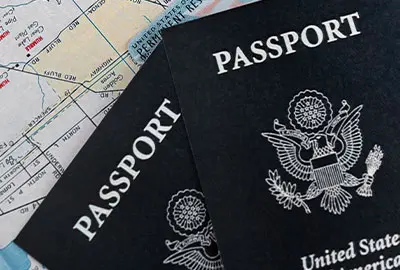What is a Deferred Humanitarian Action?

Humanitarian Deferred Action is a crucial option for many immigrants seeking temporary protection in the United States. If you are in Dallas, Texas, and need legal advice on this program, it is essential to understand what it involves, how it can benefit you, and what recent changes might affect your situation. In this article, we will provide a detailed explanation of everything you need to know, from its benefits to the steps for its renewal and the rights that exist under this legal figure.
Humanitarian Deferred Action: What You Need to Know

Deferred Action is a discretionary decision by the U.S. government to not deport an immigrant who is in the country illegally. While it does not grant legal status or a pathway to citizenship, it provides temporary protection that allows beneficiaries to remain in the country and, in some cases, obtain work authorization.
There are different types of programs under Deferred Action, including DACA (Deferred Action for Childhood Arrivals) and DAPA (Deferred Action for Parents of Americans and Lawful Permanent Residents).
Benefits of Deferred Action


This option, which replaces deportation, offers several key benefits to immigrants in difficult situations. Some of these benefits include:
- Temporary Protection: Beneficiaries are protected from deportation while the deferred action lasts.
- Work Authorization: Many beneficiaries can obtain a work permit, allowing them to maintain legal employment in the United States.
- Access to Basic Services: Depending on the state, beneficiaries may access certain social and educational services.
For many immigrants, these benefits can make the difference between living in fear of deportation and having a secure life.
Renewing Deferred Action
The process of renewing humanitarian deferred action is crucial to maintaining the protection and benefits offered by the program. Applicants must renew their deferred action before it expires, as a delay could put them at risk of deportation.
To renew deferred action, beneficiaries must meet certain requirements and provide the necessary documentation. Proper legal advice is critical to ensure the renewal process goes smoothly.
Changes in the Humanitarian Deferred Action Program

The Deferred Action program has undergone several changes in recent years, especially under different presidential administrations. It is crucial to stay informed about changes to the program, as they may affect your eligibility and the benefits.
In 2025, new regulations are expected to impact the duration of deferred action, eligibility criteria, and renewal requirements. For this reason, it is more important than ever to have the support of an immigration attorney who can guide you through these changes.
Legal Advice for Humanitarian Deferred Action in Dallas


In a constantly changing legal environment, obtaining legal advice on humanitarian deferred action is essential to protect your rights and ensure you are taking the correct steps. The immigration attorneys at Perdomo Dorsett Immigration Law have the expertise and knowledge needed to help you navigate the complex immigration system.
Whether you are applying for deferred action for the first time or seeking to renew your status, an attorney can help you understand your options, prepare the necessary documentation, and represent you in any necessary legal proceedings.
Changing Status under Humanitarian Deferred Action
One of the most important aspects to consider is whether you can change your status under humanitarian deferred action. While deferred action does not provide a direct pathway to permanent residency or citizenship, in some cases, beneficiaries may be eligible to change their status under humanitarian deferred action if they meet certain additional requirements.

Some deferred action beneficiaries may qualify to adjust their status if they marry a U.S. citizen or if an employer sponsors them. It is crucial to consult with an immigration attorney to explore all available options and determine the best strategy for your situation.
Legal Rights under Humanitarian Deferred Action
Although deferred action does not grant full legal status, beneficiaries have certain legal rights under humanitarian deferred action. These rights include protection from deportation, the possibility of obtaining work authorization, and access to certain social services.
However, deferred action is temporary and discretionary, meaning it can be revoked at any time. For this reason, it is vital to know your rights and be prepared for any changes to your status.
Final Considerations and Tips


Keep Documentation Updated
Keep your documentation up to date and notify USCIS of any changes in your address or situation.
Seek Legal Advice
The Humanitarian Deferred Action process is complicated, but an immigration attorney can guide you appropriately and ensure your application and renewal are managed correctly.
Stay Informed about Policy Changes
Policies and regulations related to Humanitarian Deferred Action can change. Stay informed about any updates that may affect your status.
Conclusion
Humanitarian Deferred Action is a powerful tool that can provide temporary protection and relief to immigrants facing difficult situations. However, you may find navigating the legal process and maintaining status complicated, especially with changes in laws and regulations.
Are you seeking legal support for your case? Our immigration attorneys in Dallas have the necessary experience to help you understand your options and protect your rights. Call today and protect your future in the United States.
Search
Categories
Trending
Recent
Schedule an appointment with our immigration team
For any questions, please contact one of our legal advisors
+1 (214) 501-0560
MONDAY - FRIDAY:
8:00 AM - 6:00 PMSATURDAY - SUNDAY:
Closed







